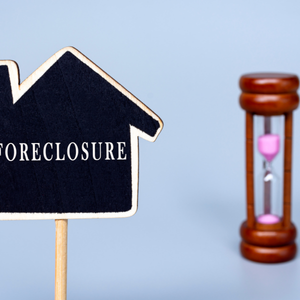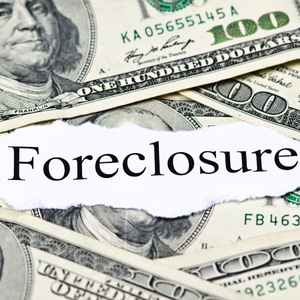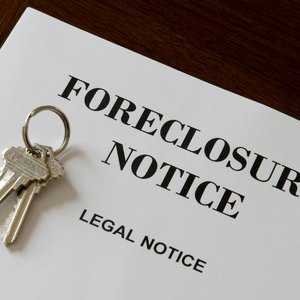
Understanding the Foreclosure Process: A Comprehensive Guide
The foreclosure process in Kentucky starts when a homeowner is unable to make mortgage payments, which causes the lender to initiate legal action in order to reclaim the property. Homeowners receive a notice of default which serves as an alert for the missed payments as well as pending foreclosure.
Kentucky is primarily a judicial foreclosure state, meaning the lender has to sue the homeowner, and only then are they allowed to foreclose the property. With the filing of the lawsuit comes a summons and complaint, which is served to the homeowner, giving ample opportunity to respond and contest.
The court permits the lender to conduct a property auction if the court decision favors the lender. In this scenario, homeowners have a redemption right that they can exercise within a specific timeframe by paying off the debt to retain the home.
Knowing these steps aids homeowners in pursuing other options, such as loan modifications and advocating for more favorable terms with lenders before the situation escalates. As a buyer of homes in difficult situations, Kentucky Sell Now helps financially distressed homeowners understand Kentucky foreclosure timelines and laws, offering a fast cash purchase option that can help them avoid foreclosure entirely.
Legal Steps in Kentucky’s Foreclosure Proceedings In Kentucky

In Kentucky, knowing the legal steps within the foreclosure process is important for a homeowner who may find himself in such a situation. In Kentucky, the foreclosure process usually begins with a notice of default which alerts the homeowner of his failure to fulfill his mortgage payment obligations.
This notice is preceded by a stage called pre-foreclosure where the homeowner has a chance to negotiate with his lender to take no further steps. If these negotiations are unsuccessful, the lender will proceed to sue the homeowner in a court of law to seek an order of foreclosure from the court.
In Kentucky, foreclosures are mostly judicial, which means that they require court involvement every step of the way. As soon as the lawsuit is filed, the defendant homeowner is served with a summons and complaint. This summons gives them an opportunity to respond and contest the foreclosure as well.
If no resolution is reached or defense successfully mounted, the court may issue a judgment against the homeowner. The property is then publicly auctioned, meaning that it will be sold to the highest bidder in an attempt to recover the mortgage debt owed.
Homeowners retain the options of reinstatement or redemption of their mortgage within certain timeframes to stop or reverse foreclosure actions during these proceedings. Understanding every step of the journey enables homeowners from Kentucky to leverage their rights and find better alternatives such as the option to sell your home for cash in Louisville or nearby cities while dealing with the legal difficulties of foreclosure.
Key Timelines in Kentucky Foreclosure Cases
In Kentucky, foreclosure timelines are critical for homeowners in financial distress. A borrower’s default on mortgage payments triggers the lender’s foreclosure action on the home and its mortgage by legally filing for foreclosure in Kentucky.
A lender will attempt to obtain a foreclosure judgment by filing a lawsuit in the circuit court after an interval of three to six months of non-payment. There is a time-bound response window of 20 days from receipt of the summons and complaint, which lets homeowners respond, contest the foreclosure, or propose a loan modification and repayment plans to avoid a court-ordered foreclosure.
In Kentucky, once a court orders foreclosure and sets a sale date, homeowners lose the right to redeem the property regardless of attempts made post that period.
Legal advice at any stage of communication with lenders could help slow down the process or completely eliminate the need for foreclosure.
Important Deadlines in the Kentucky Foreclosure Timeline In Kentucky
In Kentucky, important timelines are necessary both for homeowners and real estate professionals in the foreclosure process. The procedure usually starts after a borrower defaults on their mortgage.
After defaulting, the lender has to make a complaint to the court to initiate foreclosure proceedings. The homeowners will be served with a summons and a complaint, thereby granting them a legal window of approximately twenty days to respond.
If no response is submitted, the court is likely to grant a default judgment in favor of the lender. Following that, there is usually a sale order made by the court which sets a date for the auction of the property.
This auction date is yet another crucial deadline for homeowners intending to stop the foreclosure process using other options such as loan modification or repayment plans. Borrowers can redeem their property pre-auction by paying the mortgage in full, along with any additional costs.
Navigating the judicial foreclosure process in Kentucky using these critical deadlines allows homeowners the possibility to explore alternatives to foreclosure, such as the option to sell your home for cash in Lexington or nearby cities, and reduce the risk of losing their homes.
The Role of Courts in Kentucky’s Judicial Foreclosure Process

In Kentucky, the process of foreclosure is primarily judicial, meaning that the courts are required to be involved in every stage of the process. This approach under the law compels the lenders to institute a case in the circuit court to commence foreclosure action against a borrower who has defaulted on mortgage payments.
The role of the courts is very important because they have to make sure that every step is complied with as required under the law of the state. In this case, once the suit is started, the defendant (in this case, the borrower) gets served with a summons and a complaint, which gives them a chance to contest the foreclosure or respond.
In case the defendant does not file any response or in case a favorable order is made by the judge in favor of the plaintiff, a foreclosure judgment is granted. This authorizes public auction of the property as long as the sale is managed by a commissioner appointed by the court.
During this whole period, the courts in Kentucky make sure that the law is strictly adhered to and they also ensure that the borrowers have chances to mediate, settle, and even opt out before the foreclosure is permanent. The need for the courts ensures that the process is complied with and also provides a framework for lenders and borrowers to resolve the disputes for foreclosure in real estates in Kentucky.
Protecting Your Rights During a Kentucky Foreclosure
If you are a homeowner in Kentucky, having to face foreclosure of your house, it is important to know that there are processes within the legal framework that can help you safeguard your interests. Homeowners are advised to note that in Kentucky, foreclosures are handled through the courts, which means that a lender has to sue the borrower to initiate foreclosure proceedings.
Homeowners, during this period, have certain rights such as receiving notice and the right to respond to the complaint. It is advisable for homeowners to collect copies of their mortgages and get legal help early, as there might be defenses available like counterclaims or procedural mistakes by the lender.
Equally important is the understanding of Kolkata’s legal framework on a redemption period which enables an individual to reclaim a property from the mortgage holder within a defined period after the property has been sold. Extensive dialogue with lenders could result in some leniency such as restructured loans or even short sales or deeds in lieu of foreclosures.
How to Navigate the Pre-foreclosure Stage Effectively In Kentucky
In Kentucky, effectively managing the pre-foreclosure stage entails a thorough evaluation of one’s finances coupled with available solutions. Furthermore, clear communication and understanding of mortgage terms with the lender can go a long way in preventing foreclosure.
Mortgage affordability is a crucial factor to consider for homeowners. A loan modification, restructured repayment plan, or any other loss mitigation strategies can lessen the financial burden by altering the terms to more manageable levels.
Timelines and laws governing foreclosure are pivotal in making timely decisions. A HUD-approved housing counselor offers valuable assistance in avoiding foreclosure by refinancing or even short selling the home, which can prove to be immensely beneficial.
Maintaining detailed logs of every interaction with the lender aids resolution in disputes or negotiations that could arise later on. In cohesive efforts, the aforementioned measures support Kentucky homeowners in the pre-foreclosure stage to retain their homes.
How Many House Payments Can I Miss Before Foreclosure?
Managing the pre-foreclosure stage in Kentucky requires homeowners to be active in their financial management and to exhaust all possible avenues related to their mortgage. During this phase, ensuring you understand the mortgage terms and maintaining a dialogue with your lender can make a difference in mitigating your losses.
Homeowners can benefit from examining their mortgage payments, budgeting to identify and eliminate non-essential costs. Additionally, considering loss mitigation strategies such as loan modifications or repayment plans can aid by re-adjusting the mortgage to much lower values.
Informed homeowners are always up-to-date with Kentucky’s foreclosure laws and timelines; this enables a homeowner to take timely and decisive action. HUD-approved housing counselors are equipped with the best tools and information to assist in averting foreclosure, from refinancing to short sale options.
In cases of disputes or negotiations with the lender, having documented communications of all interactions becomes invaluable. Following these suggestions assists Kentucky homeowners in effectively navigating pre-foreclosure and potentially avoiding home loss.
How Long Does the Foreclosure Process Take in Kentucky?
In Kentucky, the duration of the foreclosure process can greatly differ from case to case. However, it is important to note that in the case of homeowners, there is a supporting timeline that can provide assistance. Primarily, foreclosures tend to be judicial in Kentucky, meaning they require a court’s involvement.
Often, defaults are issued on an account after multiple months of payment being overdue. With defaults being issued, the lender can file a legal suit. With this suit, it can take several months until a decision has been made regarding the matter.
In the event that the court rules in favor of the lender or landlord, the parties involved are usually given a 60 to 90-day notice ahead of the property sale, with the sale date set afterward. This timeline can vary depending on legal battles or negotiations, such as loan modifications, short sales, selling your house during bankruptcy, or even selling the property below market value.
In Kentucky, foreclosures can extend well beyond the traditional time frames provided through documentation. From the initial steps being taken, in terms of documentation being processed, to the final sale of the property can take up to over a year, while the initial estimate rests at six months. For homeowners, it is essential to garner as much guidance legally as they can to stem the process through documentation loopholes and prevent or delay foreclosure in any manner.
Having assisted or at least understanding the important facets timelines and checklists of foreclosures are essential. It allows for enhanced decision-making amid trying times.
What Are the 6 Phases of Foreclosure?
Understanding the financial processes is important for homeowners in Kentucky to enable them to make the right decisions. The foreclosure process has six stages, each providing different options and considerations.
The first phase is missed payments, this stage is triggered when a homeowner suffers a job loss or a medical emergency that makes it impossible for them to pay their mortgage. This leads to the second phase notice of default where the homeowner is notified by the lender that there is delinquency and they have a set time to rectify it.
The third stage is pre-foreclosure. This stage provides the homeowner with an opportunity to negotiate with the lenders or consider options like loan modification, short sale, or even a deed in lieu of foreclosure. The fourth phase is known as a foreclosure auction, where, if no deal is reached after a determined timeline, the property will be sold publicly.
In some situations, the unsold properties are bank owned, thus entering stage five bank owned REO. Finally the last stage eviction is the legal removal of the occupants who in most cases have already left on their own.
Homeowners facing financial challenges can benefit from knowing these stages and be proactive in making decisions that suit them best.
What Is the Redemption Period in Kentucky Foreclosure?

Like many states in the United States, Kentucky follows a judicial system of foreclosure, which involves the court system. One of the most critical elements of this procedure is the redemption period in relation to the foreclosure timeline and its effects on homeowners seeking to keep their homes.
Homeowners in Kentucky can redeem their foreclosed properties by paying the mortgage in full, along with any costs associated with the foreclosure, triggering the redemption period. In addition to the full payment, homeowners need to incur no further additional expenses during this window. This period tends to extend for six months after the foreclosure sale, granting a restricted but essential timeframe for them to borrow funds or make repayment arrangements.
Taking into account the limited timeframe provided to homeowners, it is vital for them to have a clear understanding of the range of actions available designed towards saving the homes from being permanently disposed of. Within the redemption window, it is critical for the homeowners to pursue every possible course of action, which may include, but is not limited strictly to, refinancing or negotiating terms of mortgage repayment with lenders and reclaiming ownership of their homes.
Alternatively, the assistance of a foreclosure attorney may prove beneficial by smoothing the strategic pathway through the legal territory of Kentucky. Having knowledge of what steps to take makes a remarkable difference during the redemption period which in turn makes management of the timeline of foreclosure in Kentucky simple.
What Is the 37-Day Foreclosure Rule?
The 37-day foreclosure rule is vital for homeowners in Kentucky as it marks the response timeline for the particular foreclosure notice. This rule deals with the specific timeline a homeowner has to respond to a foreclosure notice they have received.
In the context of Kentucky, once a lender initiates a foreclosure action, the homeowner has about 20 days balance their response to court summons. But in the scenario the homeowner does not respond in this stipulated time, the court may grant one more additional 17 days as a last chance to respond and contest the case for a total of 37 days until certain foreclosure levels are actualized.
Knowing this 37-day window is helpful in case of a foreclosure situation for homeowners in Kentucky, as it helps them explore loan modification options and refinancing before the steps cross the legal barriers leading to the loss of their home. During this time frame, homeowners are able to prepare their case alongside legal representatives, which can greatly ease the negotiation process with the lenders or improve their legal stance in a court hearing.
Following these timelines is especially important when dealing with foreclosure issues as these parameters grant the homeowners a way to take charge of their financial issues advancing towards financial stability while circumventing the intricacies of Kentucky’s foreclosure system.
Worried about how long foreclosure takes? If you’re facing financial stress and need to sell quickly, Kentucky Sell Now can help you avoid the lengthy and uncertain foreclosure process. We buy houses fast, offer fair cash deals, and handle all the details for a smooth, hassle-free sale. Don’t wait for the court timeline to take control, contact us at (502) 610-0070 for a no obligation offer. Get started today!
Useful Kentucky Blog Articles
- Can You Sell A Rental With Tenants In Kentucky
- Can I Sell My House With A HELOC In Kentucky
- Can a Cracked Foundation Be Fixed in Kentucky
- Broken Water Main to House in Kentucky
- Understanding Property Tax Rates For Kentucky Homeowners
- Top Property Management Services In Kentucky
- Restoring Fire-damaged Homes In Kentucky
- Foreclosure Timeline For Homeowners In Kentucky
- Can My Husband Legally Sell Our House Without My Consent in Kentucky?
- Understanding Kentucky Inheritance Laws For Real Estate And Housing
- Downsizing House With Kids in Kentucky: Creating A Cozy Tiny Home Lifestyle With Kids

| FORECLOSURE AUCTION | NON-JUDICIAL FORECLOSURE | MORTGAGE FORECLOSURE | BANKRUPTCY PETITION | BANKRUPTCY PROTECTION | LOUISVILLE |
| LOUISVILLE, KENTUCKY | ENTER A JUDGMENT | LIENHOLDER | LIENS | ATTORNEYS | LAWYER |
| LITIGATE | LITIGATION | INFORMATION | DEBTOR | TAXES | TAX |
| CHAPTER 7 BANKRUPTCY PROTECTION | TEXT MESSAGES | SUMMARY JUDGMENT | PRIVACY | PROPERTY TAX | PROPERTY TAXES |
| MORTGAGE MODIFICATION | MONEY | LOSS MITIGATION | INCOME | BIDDER | |
| BANKRUPTCY COURTS | TRIAL | APPRAISAL | MORTGAGE SERVICERS | MORTGAGE SERVICING | FEDERAL LAW |
| EQUITY | COMPANY | ASSETS | UNSECURED DEBTS | STATUTES | SECOND MORTGAGES |
| SCAMS | NOLO.COM | NOLO | MARKETING | LEGAL AID | INDIANA |
| EXPENSES | EVIDENCE | EMAIL ADDRESS | DEED IN LIEU OF FORECLOSURE | CREDIT CARDS | CONTRACTUAL RIGHTS |
| CONTRACTS | CASH | THE HIGHEST BIDDER | THE PROPERTY THE | FOR CHAPTER 13 BANKRUPTCY | THE JUDICIAL FORECLOSURE PROCESS |
